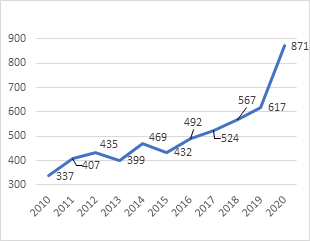A new paper published ONLINE FIRST in the Journal of Population Economics with free OPEN ACCESS shows that past consumption of culture is associated with higher happiness levels during crises.
The Global Labor Organization (GLO) is an independent, non-partisan and non-governmental organization that functions as an international network and virtual platform to stimulate global research, debate and collaboration.
Culture and mental health resilience in times of COVID-19
by Annie Tubadji
Published ONLINE FIRST 2021: Journal of Population Economics
OPEN ACCESS

Author Abstract: This paper aims to clarify the role of culture as a public good that serves to preserve mental health. It tests the evolutionary hypothesis that cultural consumption triggers a microeconomic mechanism for the self-defense of mental health from uncertainty. The COVID-19 pandemic offers a natural experiment of cultural consumption under increased uncertainty. Using primary data from a pilot survey conducted online during the pandemic and applying Probit and Heckman selection models, the study analyzes levels of happiness and propensity to help others. The results suggest that past consumption of culture is associated with higher happiness levels during crises. Moreover, spontaneous cultural practices (such as group singing) during times of uncertainty are associated with an increase in the pro-social propensity to help others. These findings highlight culture as a tool for promoting mental health at the micro level and social capital resilience at the aggregate level.
More from the GLO Coronavirus Cluster

EiC Report 2020
Journal of Population Economics
Access to the recently published Volume 34, Issue 2, April 2021.
Workshop presentation of key articles with full video.
LEAD ARTICLE OF ISSUE 2, 2021:
Measuring gender attitudes using list experiments
by M. Niaz Asadullah, Elisabetta De Cao, Fathema Zhura Khatoon, and Zahra Siddique
OPEN ACCESS: Free Readlink – Download PDF
Ends;

